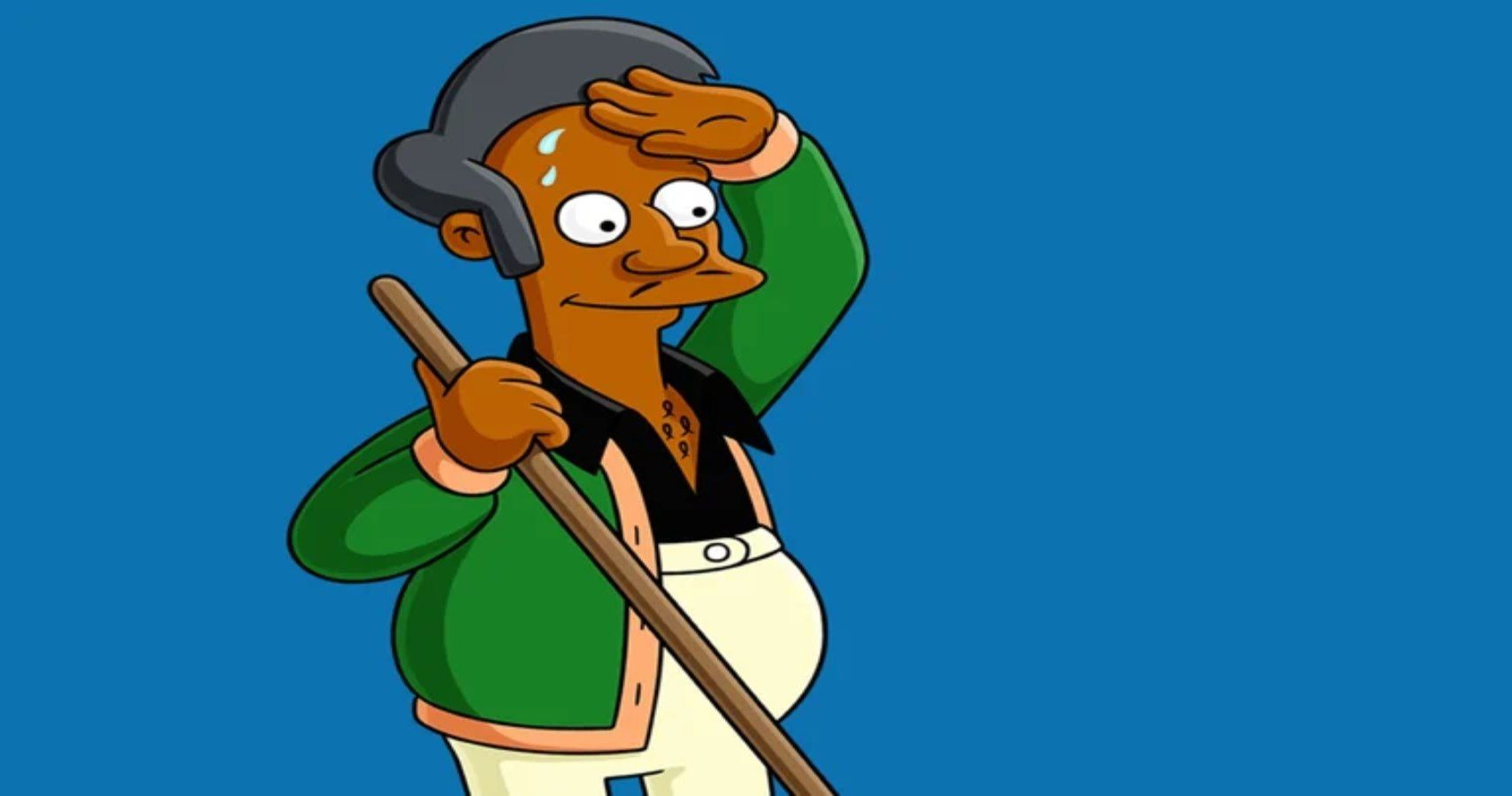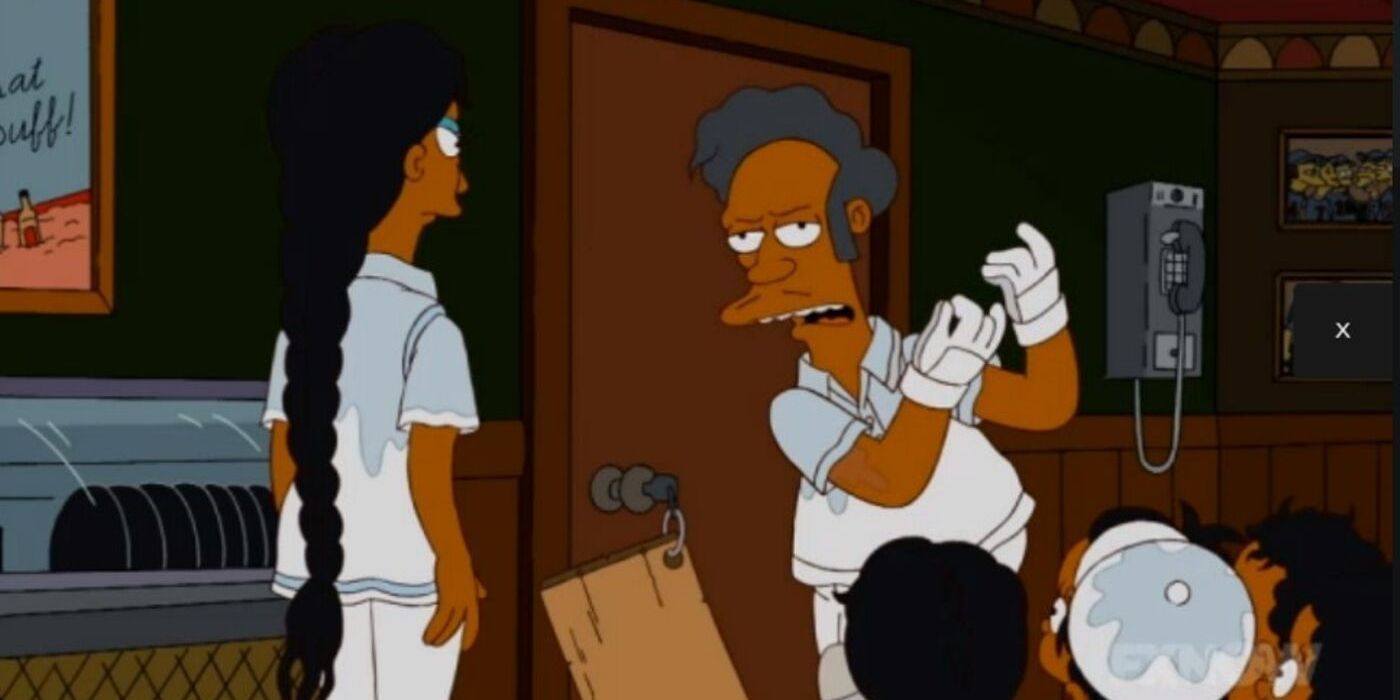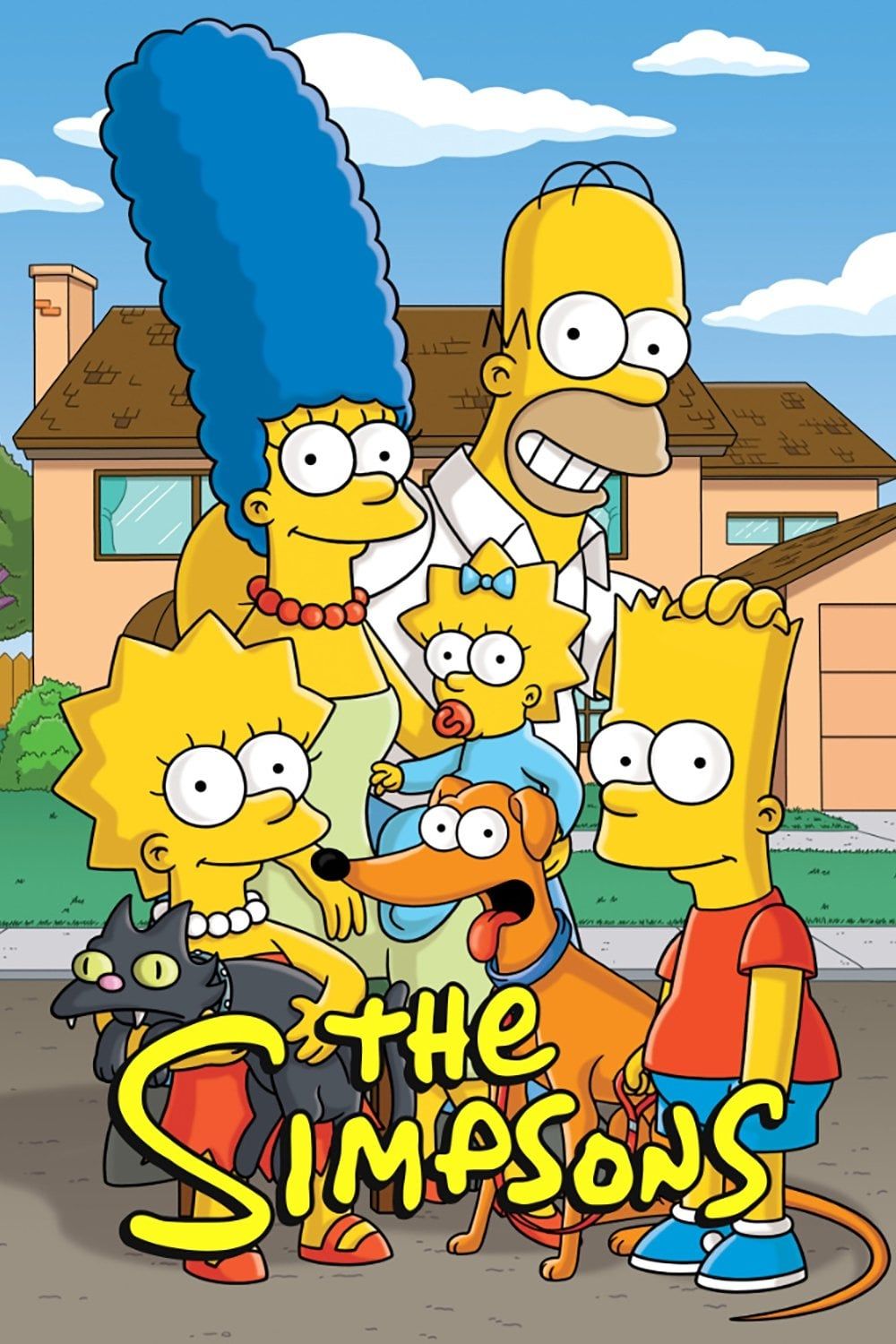The Simpsons voice actor Hank Azaria looks back on the controversy that led to his decision to retire from voicing Apu, shining a light on his thought process that led to him stepping away from the character. Azaria has been a mainstay of The Simpsons cast since the first season premiered in 1989, providing the voices for several beloved characters. Azaria provided the voice of Apu, the dedicated clerk of Springfield’s main branch of the Kwik-E-Mart and close friend to the titular family.
While speaking with the Pablo Torre Finds Out podcast, the iconic Simpsons actor delves into the circumstances that led to him retiring from providing the voice of Apu in 2017. According to Azaria, he took the time to process things before addressing the situation, from reflecting on the portrayals that inspired Apu’s creation to how the clerk’s portrayal compared to other characters he played. He also discusses how he ultimately decided that the real-world usage of the character in hate crimes and how it shaped perspectives on South Asian communities led to his retirement. Check out Azaria’s full recollection below:
That voice was based on a performance from a movie called The Party in the mid-60s where [Peter Sellers] played an Indian guy named Hrundi V. Bakshi in brownface. What’s the difference between Inspector Clouseau, a silly French voice, or Doctor Strangelove, a silly German voice, and Hrundi V. Bakshi, a rather silly Indian voice? And it’s a question I still get asked. People will say comments still to this day: “Why can you do Luigi and that’s not offensive? Why can you talk like Cletus and that’s not a problem, but you can’t do Apu? Right?”
Honestly, at first, I thought let me look into this, and then I’ll go back to doing the voice, and say I understand, but I’m going to keep doing this. And I was surprised that I came down on “No, actually, I think I am participating in a harm here.”
Well look, I’m not a hero, by the way. I got dragged to this, okay? And I couldn’t get out of it because I had this professional public decision to make. There were a few things that were linchpin moments in that decision. I’d say the main thing was, when hate crimes were perpetrated against Southern Asian people, a lot of times they were just called Apu; I became a slur when convenience store guys were stabbed or shot or robbed, you know. Especially when guys who were in more stereotypical professions were hated on physically and called Apu. That wasn’t great. That means it got away from us, something got away. Of course, we didn’t mean it that way. Yes, and we’re not to blame for people turning it into that kind of hate, but we did tee it up.
It was interesting. I did a movie once with a very talented vocal guy, and he would do sort of a Jewish voice, kind of a Jackie Mason voice. He knew I was Jewish, and he’d kid around with me this way. And this was a person who was famous for voices, and it didn’t bother me at all, as a Jewish person, that he would do this voice. But then I started thinking, “Well, what if this voice was the only- Apu was the only character on television or in any American pop culture for 20 years? That is the key part that Apu is what they had, for better or for worse. And I started thinking, “Well, what if this was the only voice in American pop culture for Jews?” And every time, you know, people just ask “Hey, do you talk like this? Does your father talk like this?” I probably wouldn’t love that.
There’s all this other stereotyping and things that have teeth in them that affect people of color in this country. So, while Apu might not be the most important thing in the world, it’s a window into something quite important.
What This Means For The Simpsons
While Being Well-Defined, The Springfield Resident Has Had A Difficult Legacy
Apu was one of The Simpsons‘ most beloved and well-defined characters. He experienced the many struggles and joys of running the Kwik-E-Mart. Apu fought to stay in Springfield when he and many other immigrants who made the city their home were threatened by a quick scheme from Mayor Quimby to avoid scrutiny. He also worked hard to raise eight children with his wife, Manjula. As such, while he is a problematic character, Apu is also a character who has endeared himself to many.

Related
The Simpsons: 10 Best Apu Episodes To Rewatch Now That Hank Azara is Retiring The Character
With The Simpsons now losing Apu to retirement, here are the 10 best episodes featuring Hank Azara’s iconic character of Apu.
However, scrutiny surrounding how Apu shaped perceptions of South Asian communities was common, even before comedian Hari Kondabolu aired the 2017 documentary The Problem With Apu and drew wider attention to the topic, with Azaria having weighed in on the topic in 2007 and 2013. While earlier responses showed he was initially unaware of the character’s impact, his response following the documentary and since has shown that Azaria has taken the criticisms to heart and taken great care in righting any wrongs. Despite this, there are still some who wish for Apu to return in a sensitive manner.
Our Thoughts On Hank Azaria’s Apu Reflection
Apu’s Controversy Reshaped The Animation Industry’s Handling Of Non-White Characters
The discussions surrounding Apu marked a major turning point not just for The Simpsons, but the wider voice-acting community, as productions reevaluated how they would cast non-white characters and aimed to be more conscientious, with Azaria and other voice actors in the animated sitcom stepping away from certain roles. While there are many who criticize the handling, it is clear Azaria and the crew had the best intentions in mind. Though Azaria acknowledges Apu’s impact shows that not all the damage can be easily healed, addressing the problem is a step in the right direction.
Source: Pablo Torres Finds Out/YouTube



